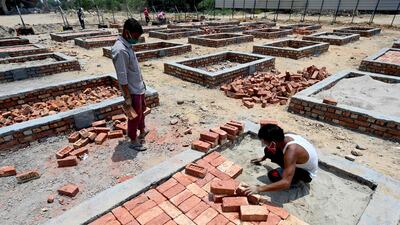Indian Prime Minister Narendra Modi created a furore after announcing a plan to build a multibillion-dollar official residence as the pandemic claims a record number of lives.
The country, reeling since late March under a second wave of Covid-19, has a poorly funded healthcare system collapsing under the weight of patients.
But this week, a government panel approved the building of a mansion for Mr Modi in the heart of the capital, New Delhi. The project will cost 134 billion rupees ($1.81bn) and be ready by December this year.
The announcement stirred a social media backlash against the government’s lavish plan.
Many people called for all resources available to be ploughed into propping up hospitals and extending other help to those worst hit by the pandemic.
Regional governments, including that of New Delhi, are pleading for foreign medical aid.
Daljit Singh found an intensive care bed for his mother after two days of searching and being turned away from five hospitals in the capital.
“This government is making a mockery of people’s misery,” he said.
“They have money for building massive residences when other homes and families are being destroyed because of the virus and lack of sufficient medical care.”
Mr Singh, 32, had driven around the city in his car with his mother, who wore a mask connected to an oxygen cylinder, as her blood oxygen saturation dropped to 56 per cent, which is dangerously low.
Mr Modi’s grand prime ministerial residence is part of the government’s $2.8bn project to build a new parliamentary complex by India’s 75th Independence Day, which falls on August 15 next year.
Several structures will be demolished and rebuilt for the project, including historical buildings in Lutyen's Delhi that were once the seat of power for British rulers.
The present Parliament, which is 170 metres in diameter, was built 94 years ago, during British colonial rule. Mr Modi’s government plans to turn it into a museum.
The Bharatiya Janata Party government, known for spending billions on statues of freedom fighters and renaming historical cities and streets, announced the grand Central Vista Redevelopment Project in 2019, justifying it on the grounds of the age and deterioration of the existing buildings.
“Landmark opportunity to build a people’s parliament for the first time after Independence,” Mr Modi said in December while laying the triangular building’s foundation stone.
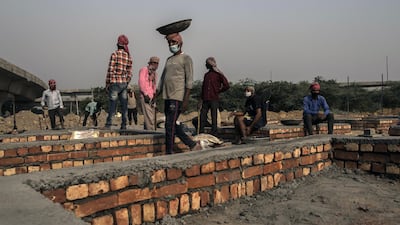
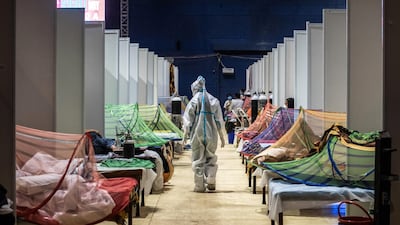
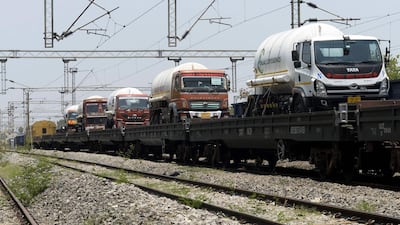

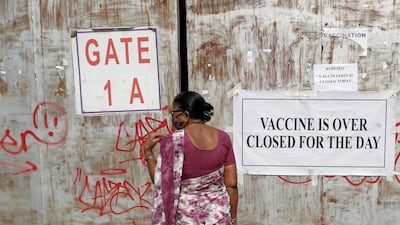

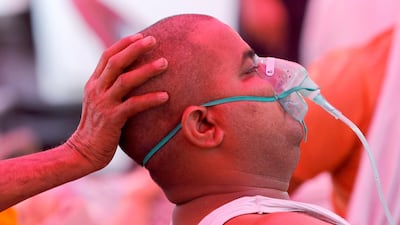
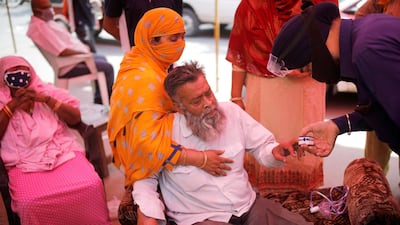
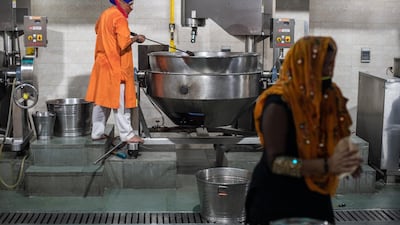
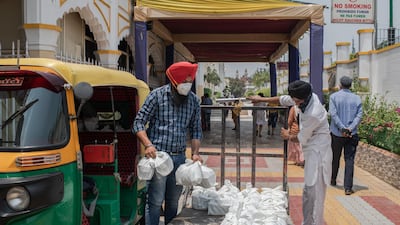
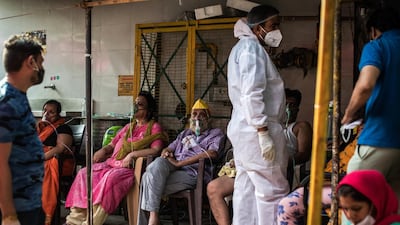
The project, termed an “essential service”, was criticised by opposition parties, historians, architects and former bureaucrats as an attempt to erase institutional memories and historical buildings.
The latest announcement sparked new rows, and the opposition criticised Mr Modi for spending billions of dollars on a vanity project during a health crisis.
The expert panel under the environment ministry on Monday granted the required clearance for the other buildings under the plan, but the construction on the expansion and renovation was already in full swing, with cranes and diggers blocking entire sections in the centre of the capital city, defying lockdown rules.
“13,450 crores [1.34bn] for Central Vista. Or, for fully vaccinating 45 crore Indians. Or, for 1 crore oxygen cylinders. Or, to give 2 crore families NYAY of 6000. But, PM’s ego is bigger than people’s lives,” Congress leader Rahul Gandhi tweeted on Tuesday. A crore is a term used in India meaning 10 million.
Meanwhile, anger against the federal government escalated as families sought beds for seriously ill relatives. The outrage on social media was palpable as people lashed out at Mr Modi.
“The government is spending 13,500 crore on #CentralVistaProject. History will remember that in the midst of the raging pandemic, Mr PM’s priority was the construction of his mansion. Imagine how many OCs and vaccine doses they could’ve purchased with this money,” tweeted Tanvi Saluja.
India is reporting an average of 300,000 new cases a day. The total tally exceeds 20 million, the second-highest after the US.
More than 226,000 deaths have been reported since the pandemic began.
Social media is flooded with SOS calls, and communities and individuals are extending financial as well as healthcare support to one another.
Hundreds of thousands are struggling every day to obtain bottled oxygen. They have to wait in queues, often for up to 24 hours, to refill cylinders in the summer heat.
